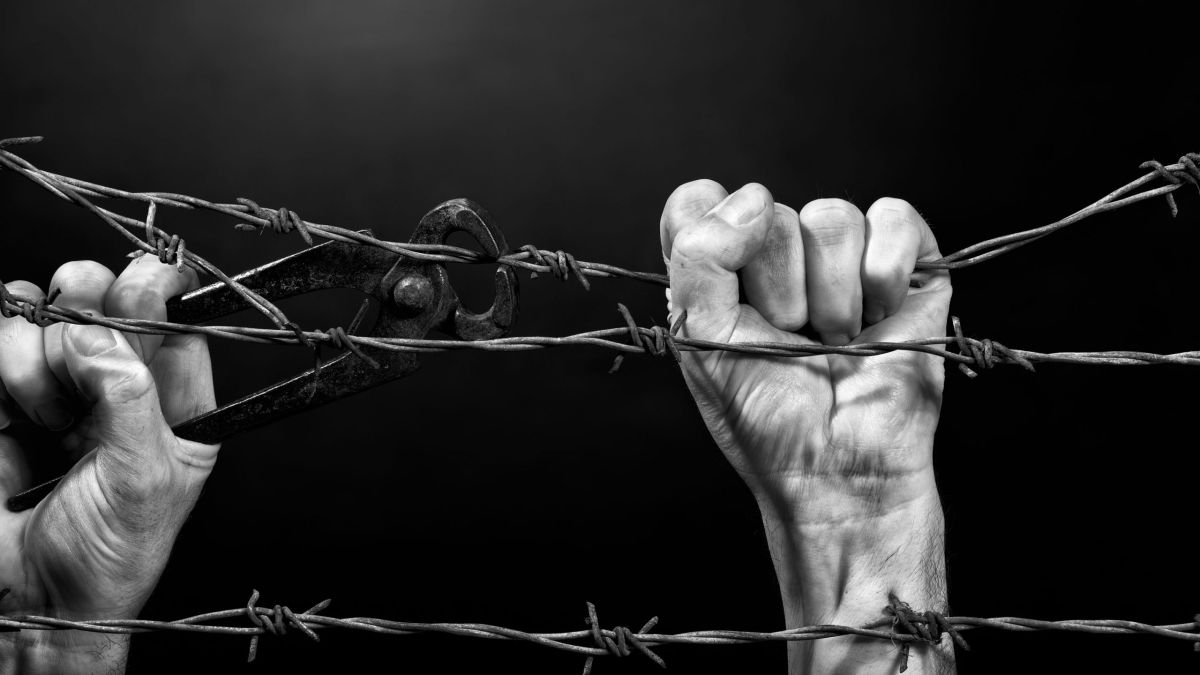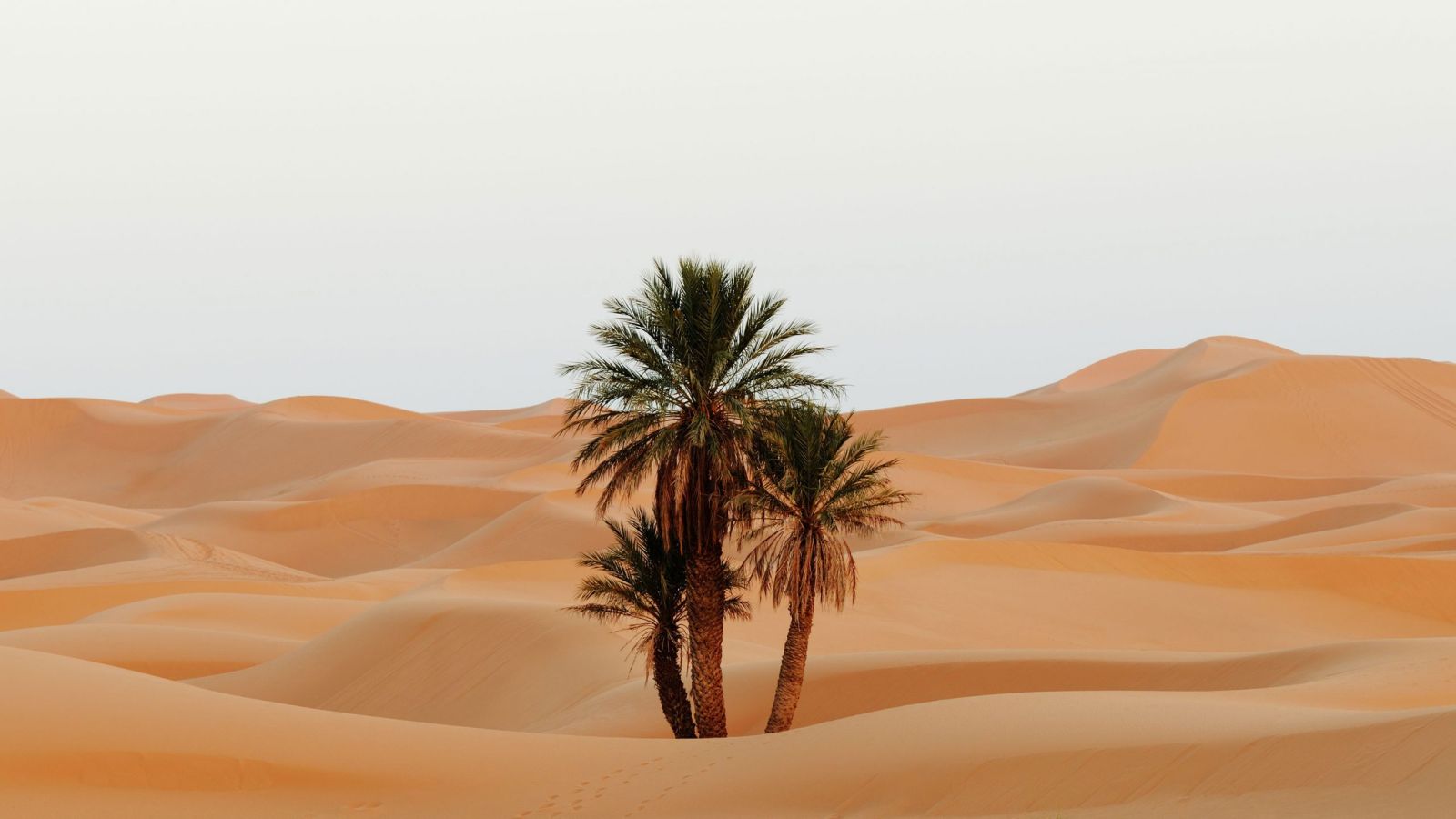The Types of Oppression and Its Appearance on the Day of Judgement
Imām ʿAbd al-Raḥmān ibn Nāṣir al-Saʿdī


Narrated by ʿAbdullāh ibn ʿUmar (رضي الله عنهما) who said: The Messenger of Allāh (صلى الله عليه وسلم) said: “A single oppressive act will appear as many layers of darkness on the Day of Judgement.”1
Imām ʿAbd al-Raḥmān ibn Nāṣir al-Saʿdī (d. 1391 AH) commented:
This ḥadīth contains a warning against oppression and encourages its antithesis which is justice. This sharīʿah in its entirety is justice: commanding with it and forbidding oppression. The Most High said:
قُلْ أَمَرَ رَبِّي بِالْقِسْطِ
“Say (O Muḥammad (صلى الله عليه وسلم)): My Lord has commanded justice.”
(al-Aʿrāf, 7:29)
إِنَّ اللَّهَ يَأْمُرُ بِالْعَدْلِ
“Verily, Allāh enjoins Al-ʿAdl (i.e. justice and worshipping none but Allāh Alone – Islamic Monotheism).”
(al-Naḥl, 16:90)
الَّذِينَ آمَنُوا وَلَمْ يَلْبِسُوا إِيمَانَهُم بِظُلْمٍ
“It is those who believe (in the Oneness of Allāh and worship none but Him Alone) and confuse not their belief with ẓulm (wrong i.e. by worshipping others besides Allāh).”
(al-Anʿām, 6:82)
For, truly, īmān fundamentally and in practice—that which is apparent and hidden from it—is all based on justice. Its opposite is oppression.
The Pinnacle of Justice
The most potent form of justice and its foundation is to fully recognise and sincerely testify to the Oneness of Allāh, while harbouring belief in His excellent Names and Attributes and dedicating one’s religious deeds and all forms of worship to Him alone. Hence, the greatest and most severe of all forms of oppression is to associate partners with Allāh, as the Most High said:
إِنَّ الشِّرْكَ لَظُلْمٌ عَظِيمٌ
“Verily! Joining others in worship with Allāh is a great ẓulm (wrong) indeed.”
(Luqmān, 31:13)
This is because justice is to position something in its appropriate place and to carry out one’s obligatory responsibilities. Whereas oppression is the opposite of this. The greatest of all responsibilities and rights and most deserving of fulfilment is the right of Allāh upon His slaves. Such that they know Him and worship Him alone while not associating anything with Him. Then, that they hold belief in the fundamentals of īmān2 and uphold the sharīʿah of Islām by performing ṣalāh, paying zakāh, fasting in the month of Ramaḍān, performing Ḥajj to the Sacred House, and striving in the way of Allāh in their speech and actions, while inviting others to the truth and doing so with patience.
Oppression Among the Creation of Allāh
As for oppressing people, it takes many forms. These have been gathered in the saying of the Prophet (صلى الله عليه وسلم) in his last sermon: “Indeed, your lives, wealth, and honour are all sacred for you. Just as this day is sacred in this month and in this country.”3
Thus, oppression in all its forms will appear as many layers of darkness on the Day of Judgement. Its perpetrators will be punished in accordance with the severity of their oppressive acts. The oppressed will be granted the righteous deeds of their oppressors, until if they possess no more deeds of righteousness or their good deeds are exhausted, the misdeeds of the oppressed will be taken from them and cast upon their oppressors.4
The Interpretation of ‘Layers of Darkness’ in the Ḥadīth
Justice will take the form of light on the Day of Judgement:
يَوْمَ تَرَى الْمُؤْمِنِينَ وَالْمُؤْمِنَاتِ يَسْعَىٰ نُورُهُم بَيْنَ أَيْدِيهِمْ وَبِأَيْمَانِهِم بُشْرَاكُمُ الْيَوْمَ جَنَّاتٌ تَجْرِي مِن تَحْتِهَا الْأَنْهَارُ
“On the Day you shall see the believing men and the believing women, their light running forward before them and by their right hands. Glad tidings for you this Day! Gardens under which rivers flow (Paradise).”
(al-Ḥadīd, 57:12)
Allāh, the Most High, has made oppression ḥarām upon himself and thus ḥarām among His slaves. Allāh is on the Straight Path in His speech, actions, and His reward and punishment. Thus, He enacts justice. Then, He has erected before His slaves the straight path which is based upon justice. Whoever turns away from it will resort to oppression and tyranny which delivers its adopters to the Raging Fire.
The Three Types of Oppression
Oppression is of three types:
- A type that will never be forgiven by Allāh [for one who dies upon it]. It is to associate partners with Allāh:
إِنَّ اللَّهَ لَا يَغْفِرُ أَن يُشْرَكَ بِهِ
“Verily, Allāh forgives not that partners should be set up with him in worship.”
(al-Nisāʾ, 4:48) - A type that Allāh does not abandon the holding of accounts in relation to, not even a small portion. This is the oppression that occurs from one of His slaves to the other. From His perfect justice is that He allows His servants to exact vengeance on one another on the Day of Judgement proportional to the degree of oppression that had occurred between them [in this dunyā].
- A type that is subject to the Will of Allāh. If He wills, He punishes in relation to it and if He wills He forgives its perpetrators. This type relates to the sins of the servants which are between them and Him, but have not reached the level of shirk.
Endnotes:
[1] Authentic: narrated by al-Bukhārī: 2337 and Muslim: 2579.
[2] Translator note: īmān here refers to the six fundamentals: belief in Allāh, His angels, His books, His messengers, the Last Day, and Divine Predestination of good and bad. When īmān and Islām are mentioned in the same context as it is here, īmān refers to belief and islām refers to action. When either terms are mentioned in isolation, they encompass both belief and action. See ‘Majmūʿ al-Fatāwá’ by Shaykh al-Islām 18:272.
[3] Authentic: narrated by al-Bukhārī: 105 and Muslim: 1679.
[4] Translator note: the evidence of this is the ḥadīth of Abū Hurayrah (رضي الله عنه) who said: the Prophet (صلى الله عليه وسلم) said: “Do you know who is the truly bankrupt person?” The ṣaḥābah answered: “The bankrupt person is the one who has neither dirham or assets of any kind.” He said: “The truly bankrupt person is the one who comes on the Day of Judgement having prayed, fasted, and payed zakāh but has insulted this person, and denigrated the honourable standing of another, stolen the money of another, spilt the blood of another [unlawfully], and has beaten another. So, this person takes from his good deeds and another takes from his good deeds. Until when they are finally exhausted before those he had oppressed had taken their full right, their sins are taken and cast upon him. Then he is thrown into the Fire.” Narrated by Muslim: 4678.
Source: Bahjah Qulūb al-Abrār: 58-60
Translated by: Riyāḍ al-Kanadī
Most Popular: Last 30 Days

















